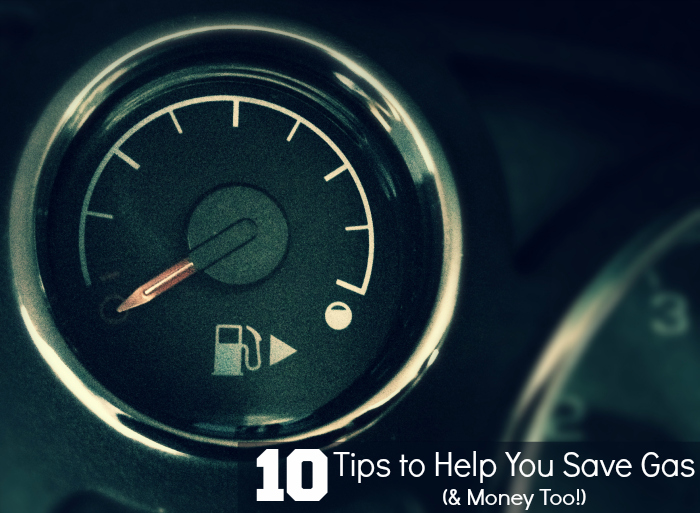Higher energy costs will add an additional $2000 in expenses to average Canadian families’ budgets. The triple-digit price of gas can seem daunting but here are a few tips to make your fuel last longer, and avoid emptying your wallet faster.
1. Plan your route
If you are out running errands, try to consolidate your shopping to one geographical area. For example, if you have a favourite grocery store, look to see if you can drop off your dry cleaning or get an oil change in the immediate area. Also, try planning your route to avoid rush hour traffic and keep in mind that you may have to fill up your gas tank while you’re getting things done.
2. Check websites and smart phone apps for prices
Websites like gasbuddy.com or tomorrowsgaspricetoday.com are great resources for planning and cross checking prices in your city and beyond. Price checking the gas prices will help you find the best deal, and you’d be surprised with how quickly those savings can add up!
3. Tune up or tune out
Keeping up to date with your car’s maintenance will not only ensure it runs smoothly, it will also prevent your ride from guzzling more fuel for routine tasks. Canadian Automobile Association has a handy vehicle maintenance check list that outlines what you should be looking for when it comes to updating and maintaining your ride.
4. Replace your air filter
According to the website Fueleconomy.gov, “Replacing a clogged air filter on an older vehicle with a carbureted engine can improve both fuel economy and acceleration by a few percent under normal replacement conditions.” If you don’t know how to replace it yourself, take your vehicle into a reputable service station – your wallet will thank you!
5. Check your tires
So, when was the last time you checked your tire pressure? A visual check may not be enough – you’ll want to make sure you have a working tire gauge so you really know (here’s a handy how-to in case you need to know). Tires are designed to perform safely day in and day out, but only if they are properly maintained.
According to Transport Canada website, “Proper tire maintenance is not only critical to the safe operation of your vehicle, but will also improve fuel economy, extend tire life, provide better vehicle handling, help to prevent avoidable breakdowns and collisions, reduce exhaust emissions that contribute to environmental and health problems.”
If that list hasn’t convinced you or scared you into checking your tires’ pressure on a regular basis, Transport Canada also says, “Without proper maintenance, such as correct inflation pressure, tires could suddenly fail, causing you to lose control of your vehicle.”
6. Change the way you drive
When first researching these tips, this was perhaps the one that surprised me the most. But, if you stop to think, it just makes sense.
The way you drive will affect your fuel economy.
If you speed, leave your vehicle idling, or drive with your foot on the brake that will inevitably take more fuel to perform those functions. Fuel Economy.gov website says, “Aggressive driving (speeding, rapid acceleration and braking) wastes gas. It can lower your gas mileage by 33% at highway speeds and by 5% around town.”
So, perhaps the easiest, most cost effective way to save money is to simply slow down, and stop driving like your late for a very important date. Besides sensible driving is also safer, so it may end up saving more than just gas money.
7. Avoid fueling up in major city centres
This may be the hardest of all the tips to follow because if you are running on empty, either you gas up or you stall (ugh this only happened once and I vowed it wouldn’t happen again). In many major city centers, the price of gas will be sometimes 5 cents more expensive out of the city than in the core. If you commute and can plan your fill ups to coordinate with out of town visits that might help save.
8. Gas up when it’s cool
Fill up your car at night, when it’s cooler outside. Gas is denser in cooler weather, giving you more bang for your buck.
9. A/C; to blast or not to blast
Here where it gets trickier, there is a real science behind fuel economy and weather. Experts on the website Fuel Economy.gov say hot weather can actually increase your fuel economy. Roll the windows down at lower speeds; use the AC at highway speeds, don’t use the AC more than needed or set the temperature lower than needed. Roll down your windows and let your car’s interior air out. Even doing that for a short time will help the cabin cool down, It also puts less demand on the AC.
10. Get rid of excess baggage
Emptying out your trunk and remove any excess and unnecessary weight can save you money. An extra 100 pounds reduces a typical vehicle’s fuel economy by 1 to 2 percent. This also includes bike racks or roof racks that aren’t being used.
Photo credit: Nadia Matos
